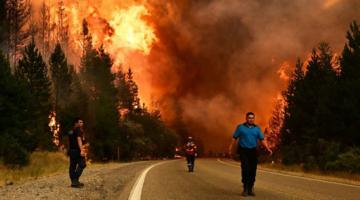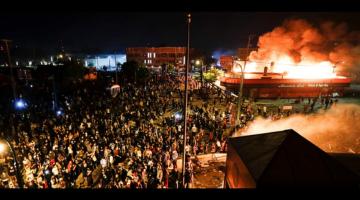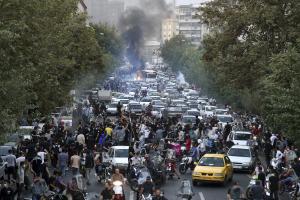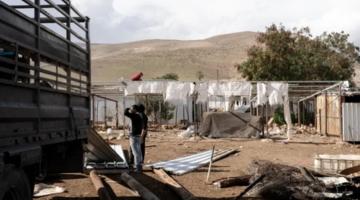An exploration of how to simultaneously act on and under radars of all kinds.
“What else, if anything, exists ‘besides’ imperial, racist and colonial relations?”
In this series, we ask acclaimed authors to answer five questions about their book. This week’s featured author is AbdouMaliq Simone.Simone is Professor at the Max Plank Institute for the Study of Religious and Ethnic Diversity. His book is Improvised Lives: Rhythms of Endurance in an Urban South.
Roberto Sirvent: How can your book help BAR readers understand the current political and social climate?
AbdouMaliq Simone: Perhaps I would say, climates in the plural. For it is a question as to how to conceptualize and experience any sense of a “shared” world. Technically, we know that “climate” itself is the result of a triangulation amongst measurements, positions and tools. An intersection of incommensurable perspectives, yet conjoined in an enforced interdependency. It is clear that the difficult conditions “we” find ourselves in have much to do with the ways in which processes of restoration and development have for so long depended upon the extractions of resources from “elsewheres,” presenting to them awesome difficulties to maintain their practices of care and sustenance. It is clear that these relations and infrastructures of extraction are largely disavowed. So the question is what else, if anything, exists “besides” imperial, racist and colonial relations—not “out there” as some kind of definitive alternative, but rather “next to” and detached, not autonomously, but in occupying spaces and times that are weakly guarded, disatended to, opaque, wasted yet generative, capable of enacting ways of doing things not pre-empted by existing forms of calculation and value. These are the interstices I wish to point to, and whose forcefulness in some ways prompts the current pre-occupations with the immanence of disaster.
What do you hope activists and community organizers will take away from reading your book?
Often times, a politics about “what could be done” must keep away from bold announcements or major maneuvers. Édouard Glissant warned against the ways in which differences of all kinds are bracketed within specific kinds of formats, such as the urbanized forms of interlocution—the platform of the city where residents are expected to announce themselves, exchange their views, and deliberate on their antagonisms. In the intensely social-mediated form of solidarity, the compulsion to talk, to reveal who one is, to share one’s excitement to be present in particular ways, to express one’s likes and dislikes is an omnipresent lure to enumerate difference only to reaffirm the extent to which it is bracketed, that any difference can belong to an “inside.” In distinction, Glissant affirms a “right to opacity,” to forms of solidarity within spaces for which no communicative regime can recognize. At the same time, solidarities need to be visible, make claims, assume power, and so the issue is how to think about the simultaneities of both acting under the radar and infiltrating the institutions that make policy and rule.
Here, a long tradition of Black critical practice is useful. Hortense Spillers has talked about the complicated strategic choices facing black people in the Americas in terms of ensuring their endurance. Blacks could insist upon their humanity in contexts in which this humanity was structurally foreclosed, where the insistence would be construed as evidence of disobedience or the very absence of humanity, but which, nevertheless, in this assertion of will despite the odds and consequences could be construed by a black self, with no official recognition, as evidence of being human. Thus the affirmation that black lives matter is a continuation of such determination.
In contrast, indifference to the value of a self-formed human subject could be manifested in the capacity of the black body to extend itself into the very surrounds, terrain, and materiality of their limited world of operations. Here an extraordinary attunement to the operations of the earth and its varying atmospheres and ways of being signaled a detachment from the need to be human. Here, the processes of social reproduction were experienced in concert with the rhythms of other forms of liveliness.
Political activism might productively think about emergent forms that continue this kind of “doubleness,” how to simultaneously act on and under radars of all kinds.
We know readers will learn a lot from your book, but what do you hope readers will un-learn? In other words, is there a particular ideology you’re hoping to dismantle?
That there are no unequivocal trajectories of justice; that the remaking of urban life in more equitable and sustainable ways for all is not something discernible in clearly formulated calculations of redistribution, citizenship, or fairness. Urban life is the locus for the intersection of forces, many of which are completely indifferent to human existence, and what those forces configure is neither for us primarily, or for any discernible purpose. That we live in environments that exceed then our capacity to understand them, domesticate them, turn them over to our use then requires modalities through which “we” (whatever that “we” is) extends itself with and through an “earth” whose dimensions are neither fortuitous or destructive, but where the dispositions of this extension remain largely inexplicable. Given this, a “we” is to be configured that is always less than and more than “human”—so the human cannot exist as the arbiter, the definer of “just relations”—relations that just are, but which can be shaped also to enable the capacity to thrive. Urban institutions thus must be based on a continuous working out of relations, of ensuring the capacities of residents to participate in these “workings out,” to continuously translate what people value, how they want to gather and live together, and what kinds of material substrates are necessary for those aspirations, without changing the languages in which those aspirations are articulated. The challenge as Arturo Escobar so well-articulates, is how to form territories of intersection, where the functioning of the territory, of the administration, of the urban system is based on extending the capacities and knowledge of its constituents toward each other, while according the space for those different knowledge capacities to remain different without connoting a difference in terms of value or access to material sustenance. This is life that resists calculation, that does not decide upon things “for sure”, that institutionally facilitates the “give and take” of multiple initiatives, without hoarding or indebtedness.
Who are the intellectual heroes that inspire your work?
Gilles Deleuze and Felix Guattari, Fred Moten, Jean-François Lyotard, Jean-Luc Nancy, Éduoard Glissant, Malik al Shabazz, Katherine McKittrick, Antonin Artaud, Toni Morrison, Achille Mbembe, Sylvia Wynter, Henri Lefebvre, Elizabeth Povinelli, Cecil Taylor, Wadada Leo Smith, and Henry Threadgill.
In what way does your book help us imagine new worlds?
The idea is not so much to posit a picture of a new world, or a clearly graspable destination. Rather, the intent is to focus on processes that would seem to keep imaginations going, to sustain the capacities to keep on moving on. Such movement in and of itself is the insufficient but necessary condition to generating what I have called the “something else besides”—that which is yet to come, but may already be here within lives and places otherwise considered wasted or expendable. After all, for many poor people, moving is the only option they have in order not to be completely captured by a life of immiseration that they know full well is likely to be all they will ever experience. But even in these conditions of oppression, they cannot be allowed to define completely the act of living, and so this act must itself be removed from the rationalities and calculations of efficacy or probability. It must simply be. Many of the situations in the book focus on incremental attainments, the capacity to build upon already existent infrastructures of life. Here, the incremental is not a practice aimed at a final destination, but rather the occasion through which the urban residents I work with signal to each other a willingness to renew existing forms of collaboration or to try on new ones. The incremental is a reflection of confidence in what one knows and a willingness for this confidence to take on the unanticipated, without erasing all that has come before, but to rather interweave in reciprocal relations of “call and response,” proposing things to the world in order to elicit something that is not confirmation or critique, but unexpected voicings of possibility. This is what I think is endurance—where you implement what you know in a turntaking with others whose skills and ways of doing things are different but potentially applicable no matter their genealogy. Through this process, then new worlds may be built.
Roberto Sirvent is Professor of Political and Social Ethics at Hope International University in Fullerton, CA. He also serves as the Outreach and Mentoring Coordinator for the Political Theology Network. He is co-author, with fellow BAR contributor Danny Haiphong, of the new book, American Exceptionalism and American Innocence: A People’s History of Fake News—From the Revolutionary War to the War on Terror.
COMMENTS?
Please join the conversation on Black Agenda Report's Facebook page at http://facebook.com/blackagendareport
Or, you can comment by emailing us at comments@blackagendareport.com



















